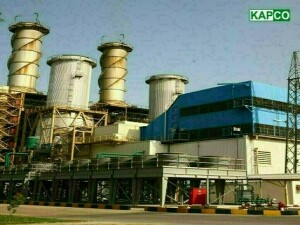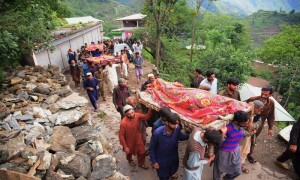Voters in a Japanese city overwhelmingly rejected a plan on Sunday to bring more planes and troops to a nearby US Marine base, complicating talks on relocating US forces throughout Japan.
With all votes counted, more than 43,000 rejected the plan and just over 5,000 were in favour, an official in the south-west city of Iwakuni said.
The result of the referendum is not binding, but a "No" vote is a headache for both Tokyo and Washington.
The referendum, a rare Japanese exercise in direct democracy, took place as Tokyo and Washington sought to wrap up by the end of March a sweeping plan to reorganise the nearly 50,000 US troops in Japan.
The two sides were also discussing how much Japan should pay to move 7,000 Marines from its southern island of Okinawa to Guam.
Opposition from Iwakuni and other communities worried about noise, accidents and crime associated with US bases has hampered efforts to finalise the overall realignment plan, part of Washington's efforts to transform the US military globally into a more flexible force.
An official in Iwakuni, 600 miles (1,000 km) west of Tokyo, reported earlier that almost 59 percent of the city's nearly 85,000 eligible voters had cast their ballots in the election.
A turnout of at least 50 percent was needed for the referendum to be valid.
Central government officials suggested the overall plan would be implemented whatever the outcome of the referendum.
"It is necessary to carry out the relocation at any cost," Defence Minister Fukushiro Nukaga was quoted by Kyodo news agency as saying in a statement. "I will do my utmost to gain local understanding by explaining the relocation plan."
Voters were asked to vote on a plan to transfer 57 carrier-based planes and about 1,600 military personnel from Atsugi naval base near Tokyo - where locals have complained of flight noise - to the Iwakuni Marine Corps Air Station, already home to more than 3,000 Marines and 57 US aircraft.
VOICE OF THE PEOPLE:
The transfer would take place in 2009 after completion of an offshore runway built on reclaimed land. In return, 17 Japanese planes and 700 Japanese military personnel would move to Atsugi.
Iwakuni Mayor Katsusuke Ihara, who called the referendum, said residents had the right to be heard.
"This is the voice of the people," Ihara told a private Japanese TV broadcaster.
"I have no right to comment on national issues such as security, but it is only natural for the people of Iwakuni to speak out on aspects that affect their lives," he said.
The Iwakuni referendum could bolster opposition in other places. Governor Keiichi Inamine of Okinawa, where resentment of the US bases is especially deep for complex historical reasons, on Sunday reiterated his opposition to a plan to relocate a Marine heliport inside the prefecture.
Ihara's critics had said he was using the referendum to improve his prospects in a mayoral election in April after Iwakuni merges with seven nearby towns and villages.
They had even urged voters to boycott the referendum to keep turnout below 50 percent.
Located 350 miles from the tense border between North and South Korea, US Marine Corps Air Station Iwakuni would play an important role in any conflict involving the peninsula.
Residents, however, were more concerned about the effect on their daily lives.
Some worry about noise pollution and crime. Others hope the government will offer financial incentives and help boost the local economy if the plan goes ahead.
BR100
15,003
Increased By
41.1 (0.27%)
BR30
42,253
Increased By
174.3 (0.41%)
KSE100
147,028
Increased By
536.6 (0.37%)
KSE30
44,872
Increased By
39.7 (0.09%)




















Comments
Comments are closed.